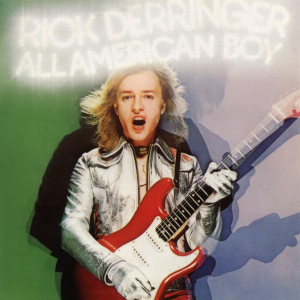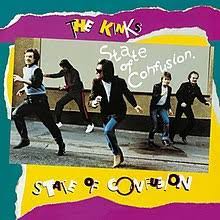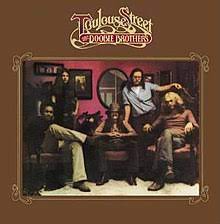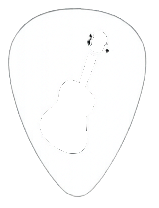Top 70s Alternative Rock Songs You Can Learn on Guitar
The 1970s produced more than just the biggest rock legends — it also gave rise to a compelling wave of alternative rock bands who offered a different kind of edge.

This page is a tribute to those unique sounds and deep cuts that stood apart from the mainstream.
Whether you're into the power-pop vibes of Big Star, the mystique of Echo & the Bunnymen, or the haunting tones of Blue Öyster Cult, there’s something here to reignite your love for left-of-center rock.
These aren't just great listens — they’re also incredible songs to play and sing on acoustic guitar.
🎸 Overview Video -
“Watch This Preview of My
70s Alternative Rock”
70s Alternative Rock List
1. Big Star --- Thirteen2. Blue Oyster Cult --- Burning For You, Don't Fear The Reaper
3. Blue Suede --- Hooked On A Feeling
4. Echo And The Bunnymen --- The Killing Moon
5. Rick Derringer --- Rock And Roll Hoochie Koo
6. Stealers Wheel --- Benediction, Star, Stuck In The Middle
7. The Carpenters --- Superstar
8. The James Gang --- Funk 49, Walk Away
9. The Romantics --- What I Like About You
10. Uriah Heap --- The Wizard
11. Zebra --- One More Chance, Tell Me What You Want
1. Big Star Songs - Learn To Play On Guitar

Thirteen is a track from Big Star's debut album from 1972.
This song was released as a single but was mislabeled and called Don't Lie To Me. There is no mention if the song became a hit but Rolling Stone has it as #396 on their list of the greatest 500 songs of all time.
Chords And Strumming
Play this one in standard tuning with a capo 2nd fret if you want to with a 1-2-up-down rhythm pattern where 1-2 are arpeggio notes of the chord you're on. Some lead in this one with the chords G, C, D, Em, Am, Am7 and a Dmaj7.
Guitar Lesson Details - (chords & lyrics sheet incl with lesson)
Back To Song List
2. Blue Oyster Cult Songs - Learn To Play On Guitar

Burning For You was the lead single from Blue Öyster Cult’s eighth studio album, Fire of Unknown Origin (1981), and marked a commercial resurgence for the band.
Sung by guitarist Buck Dharma, who also co-wrote it with lyricist Richard Meltzer, the track became their only number‑one hit on Billboard’s Mainstream Rock chart and reached #40 on the Hot 100, earning them a rare Top‑40 placement.
Its slick production, strong melody, and early MTV video helped cement it as a staple of early ‘80s hard rock radio.
Chords And Strumming
This one has a high vocal range component required to sing so just be advised. The chords here are F, G, Am, C, Em, G6, Dm, and an Am/G. The rhythm can be played with a down down up down down up down up and repeat but but there are also sections when you'll play down strokes as well as a shuffle type of rhythm as well while in standard tuning.
Guitar Lesson Details - (chords & lyrics sheet incl with lesson)
Back To Song List

Don't Fear The Reaper was originally released in 1976 from their album Agents of Fortune.
“(Don’t Fear) The Reaper” became Blue Öyster Cult’s highest-charting single, peaking at #12 on the Billboard Hot 100.
Written and sung by Dharma, the song unites a haunting melody, philosophical lyrics contemplating mortality and eternal love, and a hauntingly memorable riff. Over the decades, it has become a rock music landmark—praised for its craft, featured in numerous films and TV shows, and forever memorialized in pop culture thanks to the legendary “more cowbell” Saturday Night Live sketch.
Chords And Strumming
In standard tuning you'll play a riff all the way through this one with a 1-2 up up and then you'll also play down strokes as well as down strokes with some quick shuffles. No real lead but a few riffs as you play the chords Am, G, F, Fm, Em and an E.
Guitar Lesson Details - (chords & lyrics sheet incl with lesson)
Back To Song List
3. Blue Swede Songs - Learn To Play On Guitar

Hooked On A Feeling was from the Swedish band Blue Swede and this song was also the name of the 1974 album. BJ Thomas first recorded the song in 1969.
The Blue Swede version hit #1 in the US in 1974.
Chords And Strumming
I play this one in standard tuning with a capo on the 2nd fret using a down down up up down up and repeat rhythm pattern. There is a few riffs in this one with the chords A, Amaj7, A7, D, Dm, Esus, E, Db, Gbm and Asus2maj7.
Guitar Lesson Details - (chords & lyrics sheet incl with lesson)
Back To Song List
4. Echo And The Bunnymen Songs - Learn To Play On Guitar

The Killing Moon was a single release from the 1984 album Ocean Rain from Echo And The Bunnymen.
The song peaked at #7 in Ireland and #9 in the UK, which was their highest charting single in Ireland.
Chords And Strumming
I play this one with a down down up up down up rhythm pattern with the chords Bm, Cm, G, Em, C, A, D and an E.
Guitar Lesson Details - (chords & lyrics sheet incl with lesson)
Back To Song List
5. Rick Derringer Songs - Learn To Play On Guitar

Rock and Roll, Hoochie Koo was first recorded by Johnny Winter in 1970 with his band "Johnny Winter And," which included Rick Derringer and other former members of the McCoys.
Rick Derringer later recorded the song for his 1973 solo debut album "All American Boy."
Chords And Strumming
This one uses some shuffle rhythm all the way though with some chops and some lead in standard tuning. The chords you'll need here are F, G, A, C, D, and an E.
Guitar Lesson Details - (chords & lyrics sheet incl with lesson)
Back To Song List
6. Stealers Wheel Songs - Learn To Play On Guitar

Benediction can be found on the Stealers Wheel album Right Or Wrong from 1975.
The song was never released as a single.
Chords And Strumming
A little picking in this one with a down down up down up down down up down up rhythm pattern played in standard tuning. These is some picking in here using the chords C, G, Am, F, Em, A and a D.
Guitar Lesson Details - (chords & lyrics sheet incl with lesson)
Back To Song List

Star was released as a single from the Stealers Wheel album Ferguslie Park from 1973.
The song reached #12 in Canada, #25 in the UK and #29 in the US.
Chords And Strumming
This one has a steady down up down up rhythm pattern or you could play a root down up root up down up in standard tuning. They recorded this a fret higher with the chords, D, C, G, Bm, Em, Am and a B7. You'll shuffle strum on that B7 change. A bit of picking in here as well.
Guitar Lesson Details - (chords & lyrics sheet incl with lesson)
Back To Song List

Stuck In The Middle With You was from the bands first album in 1972 entitled Stealers Wheel.
The song hit #2 in Canada, #6 in the US and #8 in the UK and was their highest charting song.
Chords And Strumming
You'll need Drop D Tuning for this one using the D, G, A, C and Am chords. If you were to play not fill in bass and slides the rhythm would be a down down up down up down up down up but as you'll see, this one keeps your hands moving.
Guitar Lesson Details - (chords & lyrics sheet incl with lesson)
Chords & Lyrics UnavailableBack To Song List
7. The Carpenters Songs - Learn To Play On Guitar

Superstar was first recorded in 1969 by Bonnie & Delaney as a b-side to their single Comin Home.
But Richard Carpenter heard Bette Midler sing this on Johnny Carson and decided to make an arrangement for sister Karen to sing. Good choice as they scored a #2 on the US pop charts in 1971.
Chords And Strumming
The chords here are Em, Em/D, C, G6, Am, Bm, B7, G and an Fmaj7. A few riffs with a 1-2-3 up down up down up arpeggio play for the verse and a down down up down up down up and repeat rhythm pattern for the chorus.
Guitar Lesson Details - (chords & lyrics sheet incl with lesson)
Back To Song List
8. The James Gang Songs - Learn To Play On Guitar

Funk 49 was released in 1970 and is one of the James Gang's most iconic tracks and a defining moment for guitarist Joe Walsh, who co-wrote the song with bandmates Dale Peters and Jim Fox.
It appears on their second album, James Gang Rides Again, and quickly became a fan favorite thanks to its gritty guitar riffs, heavy groove, and raw energy. While it didn’t chart high on the Billboard Hot 100 — peaking at #59 — the song’s infectious riff and explosive instrumental break earned it lasting recognition on classic rock radio and playlists.
“Funk #49” helped solidify Joe Walsh’s reputation as a powerful guitar force, eventually leading to his successful solo career and later, his role in The Eagles. The track remains a staple of 70s rock and a showcase of the power trio format done right.
Chords And Strumming
This one is played in standard tuning with a steady shuffle for rhythm as you play the various chord shapes for the chords, A, B and D. No real lead in here but a few slides at various positions on the fret board.
Guitar Lesson Details - (chords & lyrics sheet incl with lesson)
Back To Song List

Walk Away was released in 1971 as the lead track on Thirds, the James Gang’s third studio album — and it stands as one of the band’s most enduring songs.
Written and sung by Joe Walsh, the track blends crunchy guitar riffs with bluesy swagger and heartfelt lyrics about the end of a troubled relationship. It reached #51 on the Billboard Hot 100, making it one of the band's highest-charting singles.
The song is notable for its sharp lyrical edge and Walsh’s signature guitar tone, which balances distortion with tight, rhythmic control. “Walk Away” was also the last single Walsh released with the James Gang before launching his solo career and later joining The Eagles.
Chords And Strumming
I play a capo 2nd on this one which is in the key of A. It's also a pretty high sing so I'm on the low end vocally for this one with the chords G, C/G, Em, C, D, Am and an A#. Some lead in this one as you play a down down down up down up down up down up down up in a steady shuffle. Some down strokes also in here and played in standard tuning.
Guitar Lesson Details - (chords & lyrics sheet incl with lesson)
Back To Song List
9. The Romantics Songs - Learn To Play On Guitar

What I Like About You was a single release from The Romantics debut album. The song was released in 1979 and the album in 1980. The track reached #61 on the US Billboard Top 200.
Chords And Strumming
This one is a bit of a high sing for me in the key of E with the additional chords A, D, G and a B7. A little picking here with a steady down down up down up down up rhythm pattern in standard tuning.
Guitar Lesson Details - (chords & lyrics sheet incl with lesson)
Back To Song List
10. Uriah Heep Songs - Learn To Play On Guitar

The Wizard was the one of two tracks released as singles by Uriah Heep from their 1972 album Demons And Wizards.
The song did not chart in the US but did in Canada reaching #86.
Guitar Lesson Details - (chords & lyrics sheet incl with lesson)
Back To Song List
11. Zebra Songs - Learn To Play On Guitar

One More Chance is a standout ballad from Zebra’s 1983 self-titled debut album, which showcased the band’s dynamic blend of hard rock and progressive influences.
Known for their powerful vocals, tight arrangements, and emotional delivery, Zebra slowed things down with this heartfelt track — a piano-driven plea for reconciliation and forgiveness.
While it wasn’t released as a major single like Tell Me What You Want or Who's Behind The Door?, the song became a fan favorite thanks to its soaring melody and Randy Jackson’s expressive vocal performance
Chords And Strumming
Play a down down up down up down up rhythm pattern for the most part as you'll have some quick shuffles in this one. Played in standard tuning and a high vocal sing, there is a little bit of lead in here. The chords are plenty including E, E/Eb, Asus, A, Gbm, D, E, Gb, Bm, F, A4th, A5th and an A7th.
Guitar Lesson Details - (chords & lyrics sheet incl with lesson)
Back To Song List

Tell Me What You Want is one of the most recognizable and enduring tracks from Zebra’s self-titled debut album, released in 1983.
Blending hard rock riffs with soaring falsetto vocals by Randy Jackson, the song quickly became a fan favorite and helped establish Zebra as a formidable presence in the early ‘80s rock scene.
It was released as a single, reaching #89 on the Billboard Hot 100, and became a staple of rock radio stations across the U.S.
Chords And Strumming
I play a capo 2nd here but it's played without a capo with a down down up down up down and repeat rhythm pattern. Some lead in here as you move through the chords Am, G, F, D, D/Gb and a C. High vocals needed to do this one justice.
Guitar Lesson Details - (chords & lyrics sheet incl with lesson)
Back To Song List
Whether you’re discovering Zebra for the first time or revisiting the guitar grooves of Rick Derringer, this collection is all about celebrating the creative spirit of 70s alternative rock.
Each lesson on this page comes with demo videos and chord sheets to help you bring these underrated tracks to life. Be sure to check back often as we continue adding more gems from the 70s alternative scene to help you expand your repertoire and skillset.
If you liked this 70s Alternative Rock page you might also like ... (click images)
70s Classic Rock
Acoustic Versions Of Rock Songs



